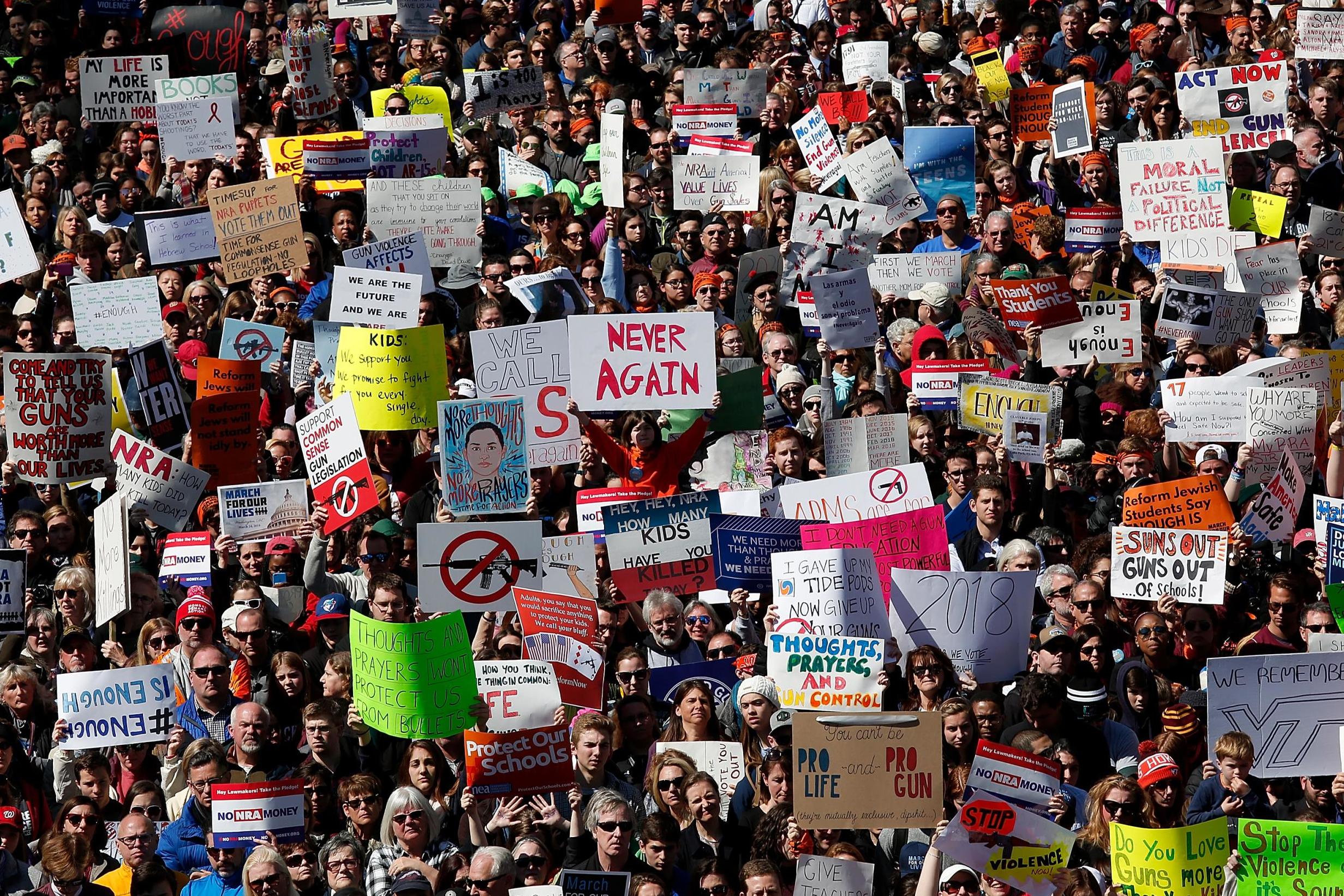New study shows US 'gun owners are more politically active'
The study looks at all gun owners, not just the minority of whom belong to the National Rifle Association

A new study stated gun owners are more likely to be politically active than those not owning firearms or calling for gun control reform in the US.
Political science researchers at the University of Kansas concluded this could be part of the reason gun control reform legislation has been slow to take hold in the US, despite numerous mass shootings from the 2012 tragedy at Sandy Hook Elementary school in Newtown, Connecticut, to the deaths of 58 people at a country musical festival in Las Vegas in 2017.
Graduate student Abbie Vetger said in a statement about the "Motivated Voices: Gun Ownership and the Propensity for Political Participation” study that gun owners are a “very strong political group who hold a lot of weight and hold a lot of influence despite being a minority in American politics”.
Professors Don Haider-Markel and Mark Joslyn looked at the behaviour of gun owners in every presidential election year from 1972 to 2012 as part of the study.
Delineating gun owners as a distinct social group - as opposed to only examining members of the powerful lobbying and membership group like the National Rifle Association (NRA) - was a key factor in reaching the study’s conclusions.
"Only one in five gun owners belong to the NRA, so we think there is something else going on than just the NRA when it comes to mobilisation," Ms Vetger said.
The study also concluded that various reasons for owning a firearm contributed to political involvement.

Owning a hunting rifle may not mean “being a hunter is a core part of your identity," but owning a weapon because a person may “think it's an essential right guaranteed in the Constitution is more a part of your political identity. It's something more attached from the get-go to politics,” Ms Vetger explained.
Researchers are still exploring why the shift over the years to gun ownership has taken place and if politicians were responding to public sentiment on gun control reform or the other way around.
Whatever the cause, the conservative, often Republican, political capital built up by the NRA and by candidates at the state and local level who have been appealing to gun owners cannot be denied.
During the 2016 election cycle that group alone spent over $1m (£771,000) in contributions to Republican political candidates and over $54m (£42m) in “outside spending” - mostly in advertising - according to the Center for Responsive Politics.
Ms Vetger said there are lessons in the study for those calling for gun control reform, as many student survivors of the Marjory Stoneman Douglas High School in Parkland, Florida have been since the February 2018 shooting which left 17 dead.
“For individuals, especially individual gun control advocates, in order to make a difference, you need to match this level of mobilisation and participation,” she said.
The study has not yet taken into account the latest public reactions, such as the March for Our Lives organised by those students but it remains to be seen if the marching and protesting translate into votes in the upcoming 2018 midterm elections and beyond.
Researchers are set to present their findings at the American Political Science Association's annual conference in Boston.
Join our commenting forum
Join thought-provoking conversations, follow other Independent readers and see their replies
Comments
Bookmark popover
Removed from bookmarks